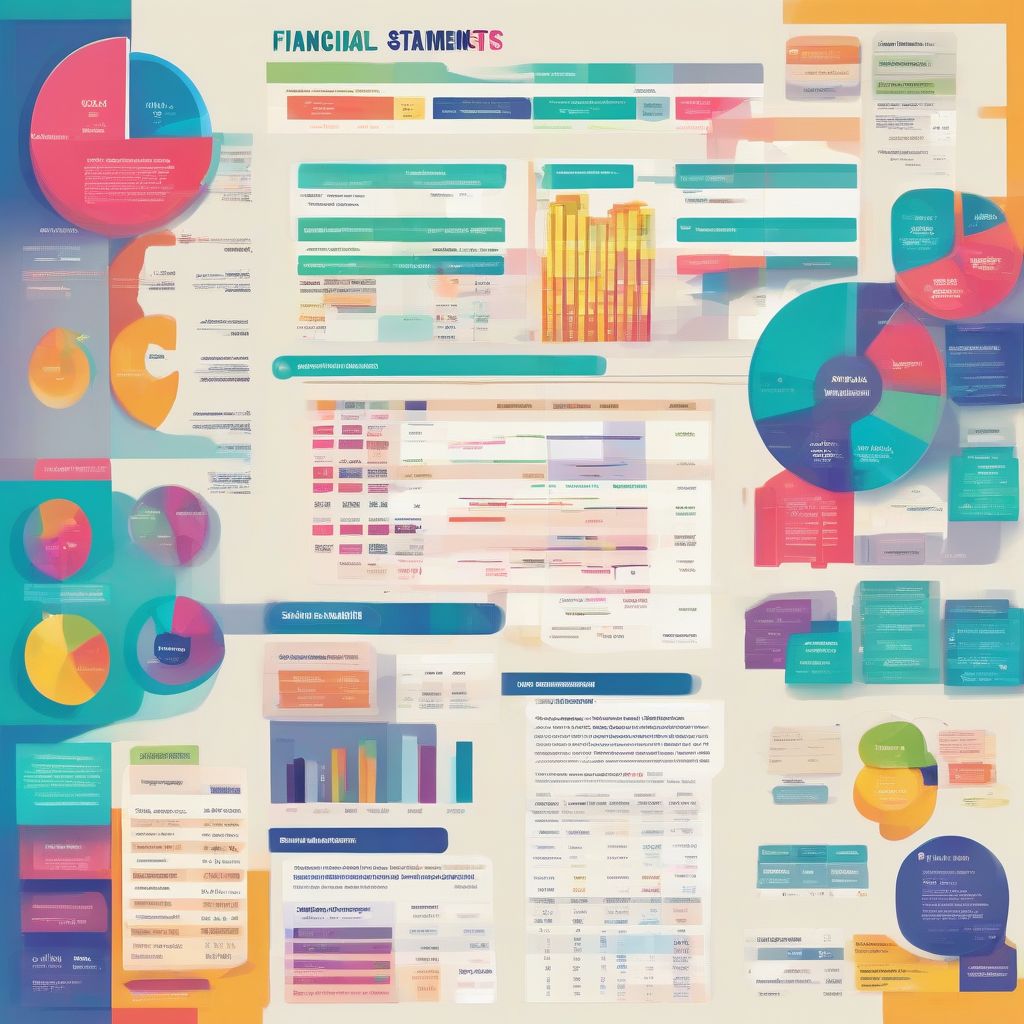In today’s competitive market, securing adequate funding is crucial for the success and growth of any small business. “Financial Programs For Small Businesses” are not merely buzzwords; they represent a lifeline, providing access to capital, resources, and support that can be the deciding factor between stagnation and expansion. This comprehensive guide delves into the world of financial programs, equipping you with the knowledge to make informed decisions for your business’s financial future.
Understanding the Importance of Financial Programs For Small Businesses
Small businesses are the backbone of any thriving economy, driving innovation, creating jobs, and fostering community development. However, they often face unique challenges in securing funding compared to larger corporations. Traditional lending institutions might hesitate due to perceived risks, limited credit history, or lack of collateral. This is where specialized financial programs for small businesses come into play, aiming to bridge the gap and provide tailored solutions.
These programs offer various advantages, such as:
- Access to Capital: This is the most obvious benefit. Financial programs provide access to loans, grants, and equity investments, enabling businesses to secure the necessary funds for various purposes.
- Favorable Terms: Compared to conventional financing options, these programs often come with lower interest rates, flexible repayment terms, and less stringent eligibility requirements.
- Technical Assistance: Beyond funding, many programs offer invaluable resources like mentorship, business training, and guidance on navigating legal and regulatory hurdles.
- Networking Opportunities: Participating in these programs can open doors to a network of like-minded entrepreneurs, potential investors, and industry experts, fostering collaboration and growth.
Exploring Different Types of Financial Programs
Navigating the diverse landscape of financial programs can seem daunting. Let’s break down some of the most common types:
1. Government-Backed Loan Programs
- Small Business Administration (SBA) Loans: Perhaps the most recognized program, the SBA offers various loan options, including the popular 7(a) loans and 504 loans, each catering to different needs.
- State and Local Government Programs: Many states and municipalities have their own initiatives to support local businesses, providing grants, tax incentives, or loan guarantees.
2. Private Lender Programs
- Microlenders: These organizations specialize in providing small loans, often under $50,000, to startups and businesses in underserved communities.
- Online Lenders: The rise of fintech has led to numerous online platforms offering quick and convenient business loans, often with streamlined application processes.
3. Equity-Based Programs
- Venture Capital: While more common for high-growth startups, venture capital firms invest in businesses with significant growth potential in exchange for equity.
- Angel Investors: These are individuals who provide capital for startups in exchange for ownership equity, often in the early stages.
4. Grants and Grant Competitions
- Federal and State Grants: Various government agencies offer grants for specific industries, research and development activities, or businesses located in designated zones.
- Private Foundation Grants: Numerous private foundations and non-profit organizations provide grants aligned with their philanthropic missions.
Key Considerations When Choosing a Financial Program
Selecting the right program is crucial for maximizing its benefits. Consider the following factors:
- Funding Needs and Purpose: Clearly define how much funding you require and its intended use, whether it’s for working capital, equipment purchase, or expansion.
- Eligibility Requirements: Carefully review the eligibility criteria for each program, ensuring your business meets the specified industry, size, and revenue requirements.
- Interest Rates and Repayment Terms: Compare interest rates, loan terms, and any associated fees to determine the program’s affordability and long-term impact on your finances.
- Application Process and Timeline: Understand the application process, required documentation, and expected timeline for approval and disbursement of funds.
Navigating the Application Process
While specific requirements vary, here’s a general overview of what to expect when applying for financial assistance:
- Develop a Strong Business Plan: A well-structured business plan outlining your business model, target market, financial projections, and use of funds is essential.
- Gather Required Documentation: Prepare to provide financial statements, tax returns, legal documents, and other supporting materials that demonstrate your business’s credibility and financial health.
- Seek Professional Guidance: Don’t hesitate to consult with a financial advisor, accountant, or business mentor to navigate the complexities of financial programs and ensure you’re making informed decisions.
Beyond Funding: Maximizing Resources for Success
Remember, financial programs offer more than just funding. Leverage the additional resources and support they provide:
- Business Mentorship: Tap into the expertise of seasoned entrepreneurs and industry experts who can provide guidance, share their insights, and help you avoid common pitfalls.
- Training and Workshops: Participate in workshops and training programs to enhance your business acumen, acquire new skills, and stay abreast of industry trends.
- Networking Opportunities: Engage with fellow entrepreneurs, potential investors, and industry professionals to expand your network, explore collaboration opportunities, and gain valuable insights.
Conclusion: Empowering Your Business’s Financial Future
“Financial programs for small businesses” are not just about securing funding; they represent a pathway to growth, stability, and long-term success. By understanding the different programs available, carefully evaluating your needs, and strategically leveraging the resources offered, you can empower your business to thrive in today’s dynamic market. Remember, thorough research, careful planning, and seeking expert advice when needed are crucial steps in securing a prosperous future for your small business.

